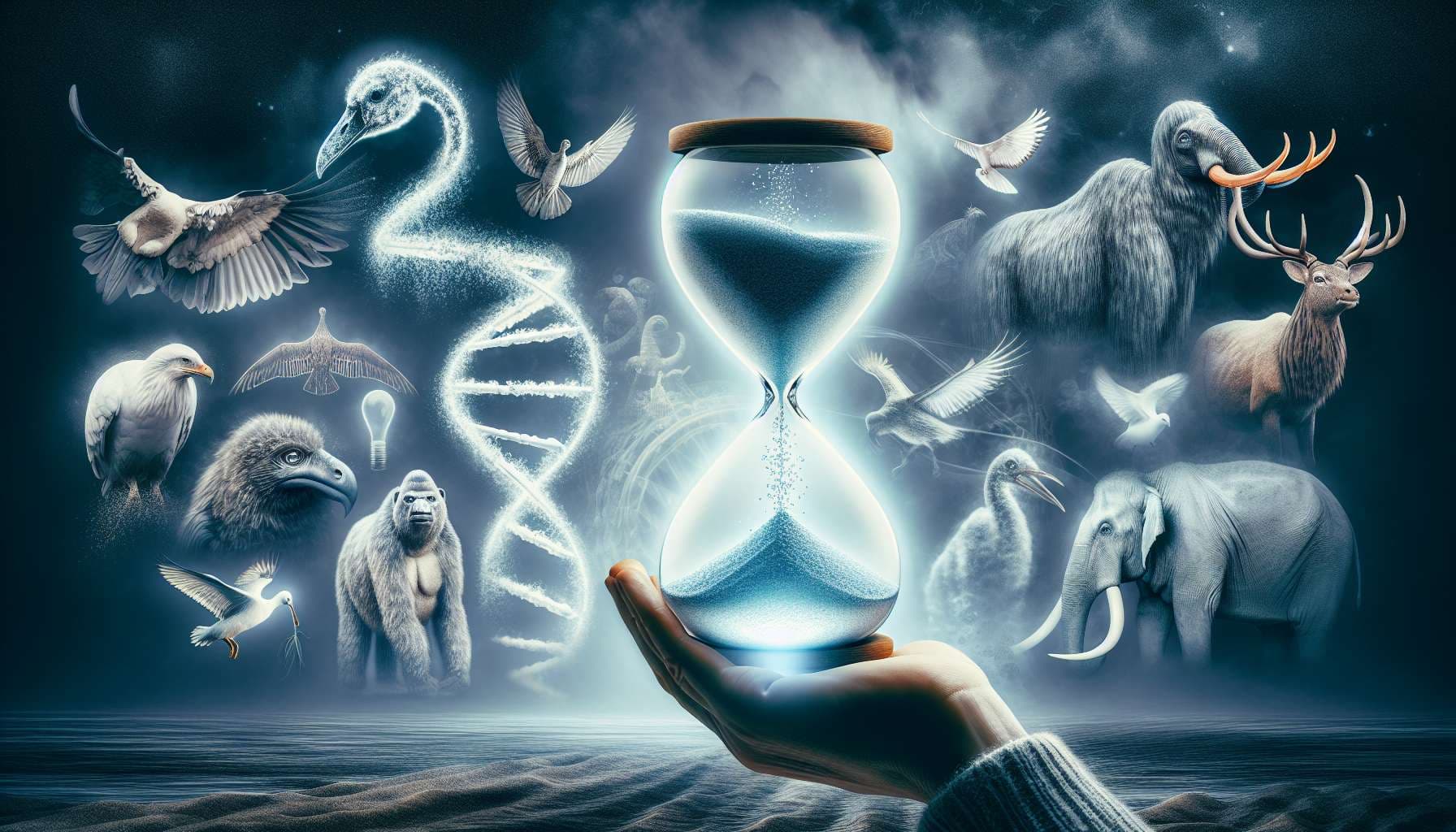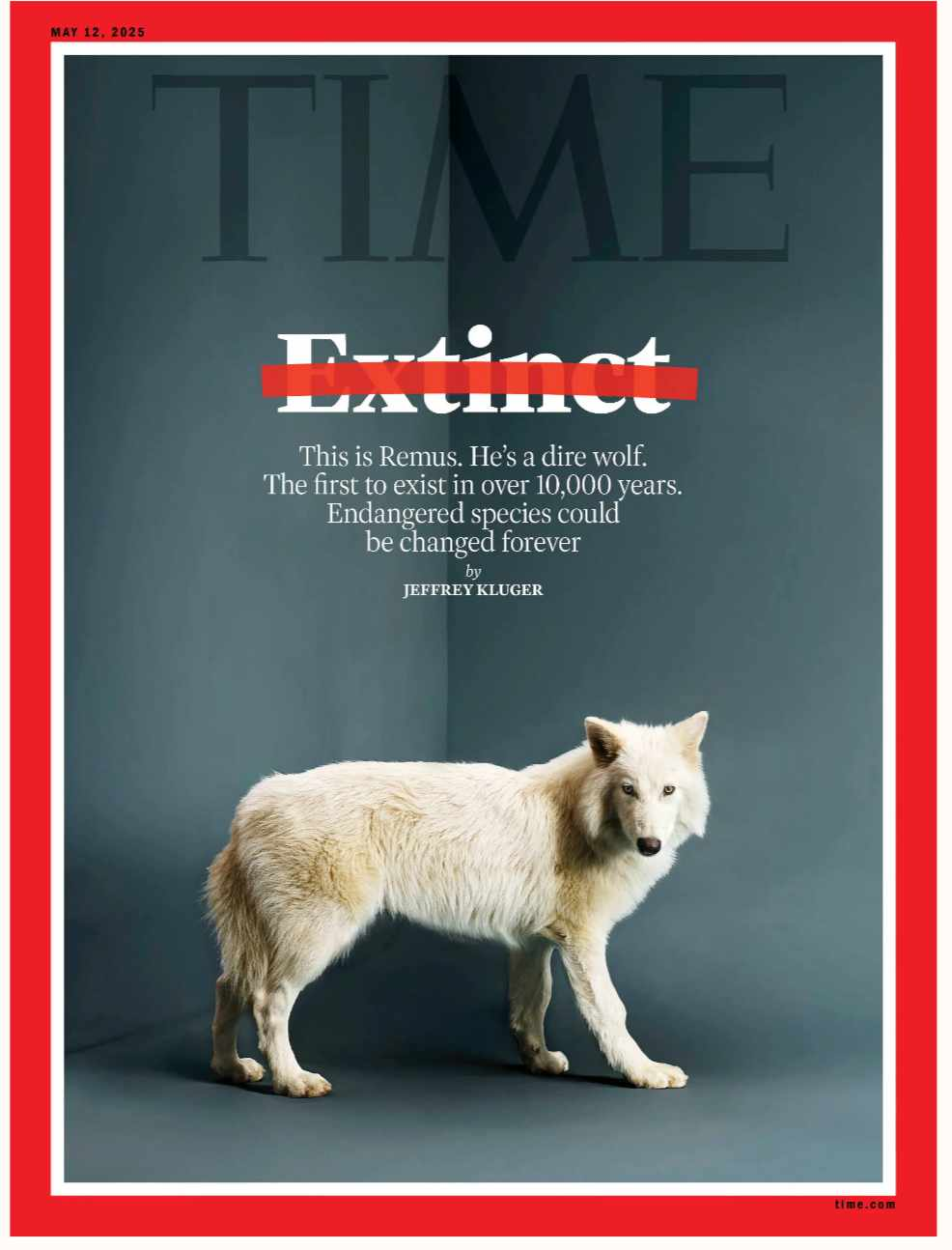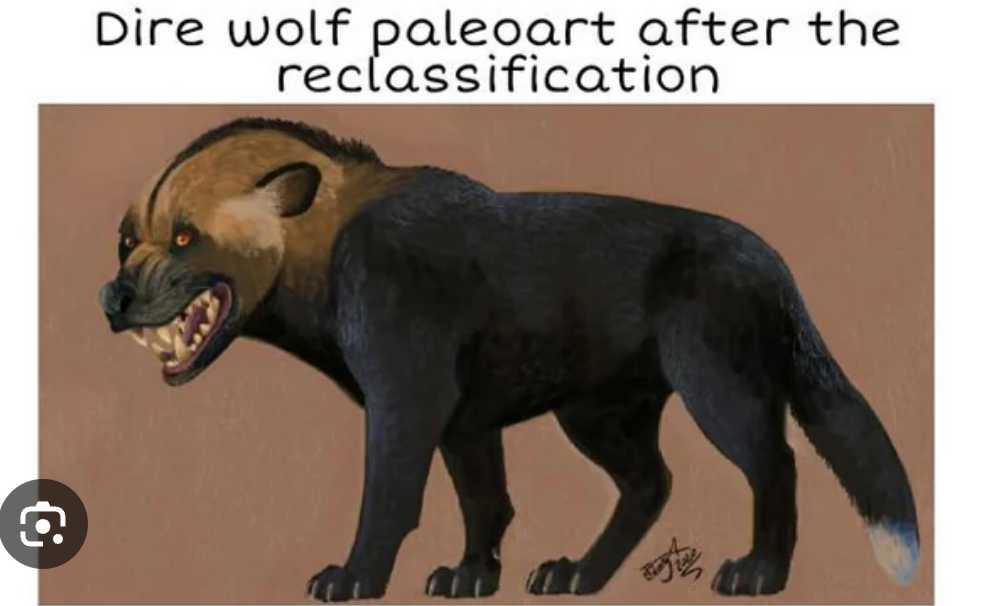
With the invention of cloning and CRISPR, there have been a number of proposals to bring back some of the animals that got extinct recently enough that we have their full genomes, like Woolly Mammoth. https://en.wikipedia.org/wiki/De-extinction
When will de-extinction be done successfully for the first time?
For this market to resolve positively, at least one individual animal of an extinct species has to be brought to life. The animal should live to the biological age of at least 1 month.
The animal could be produced by cloning, gene splicing or other means, but it has to be considered belonging to the extinct species. Genetically modifying an elephant to grow hair is not enough.
I do not bet on my own questions.
Update 2025-04-08 (PST) (AI summary of creator comment): De-extinction must involve a genetically indistinguishable animal:
The animal created should have a genome that is identical to that of the extinct species as known from authentic specimens.
It should be capable of interbreeding with members of the extinct species (if such a population existed) to confirm its species identity.
Partial genetic edits that merely make an animal genetically closer to the extinct species (compared to its modern relatives) are not sufficient for a positive resolution.
Update 2025-05-27 (PST) (AI summary of creator comment): The following scenario will not count as de-extinction:
Reviving individual organisms that never biologically died but were preserved in a dormant state (e.g., in permafrost).
In such cases, the species is not considered to have been extinct for the purpose of this market.
@1bets DNA half-life is around 500 years under good conditions. It’s possible to recover full genomes for samples up to a few thousand years old.
Possibly relevant piece of news: https://www.scientificamerican.com/article/46-000-year-old-worm-possibly-revived-from-siberian-permafrost/
I don't believe it resolves the question though, since the revived individual worms never really died, so their species couldn't have been considered extinct.
Personally I would be more amiable to Colossal defining de-extinction as including stuff with only the subset of genes changed that disproportionately affect major visible differences, if they hadn't created a creature that even phenotypically does not resemble what current palaeontology says dire wolves were like, let alone genetically, instead resembling the medieval fantasy version of them from Game of Thrones.
Colossal Biosciences dire wolf:

Game of Thrones dire wolf:

Current palaeontological dire wolf:

Linking this here so you can keep an eye on developements. Presumably this would count if successful
@traders There are news about the de-extinction of dire wolf, but so far I can't tell whether this is enough to resolve the market. Specifically, I'm not certain whether the produced animals actually belong to the extinct species, or just have a number of gene edits to make wolves look more like dire wolves without fully copying the genome. (This older article for example states that dire wolves were not very close genetically to the modern wolves.)
If there are any scientific publications related to this project, please post them in the comments.
@OlegEterevsky https://en.m.wikipedia.org/wiki/Talk:Dire_wolf
Talk page on Wikipedia about this is kinda interesting. Don't have a strong opinion either way myself though.
@ProjectVictory Apparently there's already a dedicated page: https://en.m.wikipedia.org/wiki/Romulus,_Remus,_and_Khaleesi.
@OlegEterevsky I don't think this should count since as you say they modified a few genes to express some dire wolf traits - that doesn't make it a dire wolf
@mxbi It would've counted if they edited all the genes that separate a grey wolf from a dire wolf, but it doesn't seem to be the case.
@OlegEterevsky but also, it doesn't seem that they have actually used any dire wolf genes per se, they are just tweaking wolf ones.
It seems that in a real sense these are 0% dire wolf
@JoshuaWilkes I agree. But I can see a similar approach working it they scale it to completely rewrite the genome.
@JoshuaWilkes That is incorrect, they gathered data from real direwolf DNA samples, and then, starting with a modern wolf genome, edited many portions to match direwolf DNA. So they didn't insert physical, external DNA from direwolves/fossils, but they did edit various gene sequences to be exactly the same as if they were inserts from a direwolf.
The real questions are how much of the "gap" has been crossed, in terms of total DNA proportions, and (arguably more importantly) functional (not just external appearance) terms. If most of the gap has been crossed, such that for example the cloned animals could interbreed easily with historic direwolves, then a case could be made for a positive resolution.
@OlegEterevsky in what sense are "these wolves, who share genetic sequences copied from dire wolves, are 0% dire wolf" and "if you scaled it to completely re-write the genome it would count" compatible claims?
If they completely re-wrote the genome, either an animal with a completely rewritten genome isn't actually a dire wolf because the genes didn't actually come from a dire wolf, or an animal with a partially rewritten genome is part dire wolf, surely?
The first of those seems absurd to me, and hopefully you'd agree given that you permit Gene splicing as an option. The question then becomes, how close do they have to be? What is enough gene splicing?
@DavidHiggs "they did edit various gene sequences to be exactly the same as if they were inserts from a direwolf"
We don't know right now, but I would guess with 70% confidence that this is not true. I bet that those sequences are NOT exactly the same, and that a competent scientist in the field (geneticist?) would very easily be able to see that they are grey wolf genes that have been modified to make a grey wolf look more like a dire wolf, rather than grey wolf genes that have been modified to replicate dire wolf genes.
I think there's a really tangible difference between these two things which is both quantitative and qualitative.
@JoshuaWilkes I may have miscommunicated (or you've misinterpreted me): I'm talking about a subset (various select sections) of the cloned animals' genomes being edited to be nucleotide for nucleotide identical to analyzed sections of direwolf genome available in fossil samples.
If I'm wrong due to misreading or misreporting or whatever else, I'd love to know that.
@SeekingEternity I think talking about “part dire wolf” is not very meaningful. It would be better to say that they are genetically closer to dire wolves compared to a regular grey wolf, though it’s not clear from the articles whether they used exact copies of the dire wolf genes of have adapted them.
Anyway, a “true” de-extinction would require creating an animal that is genetically indistinguishable from existing specimen and would be able to breed with them if there were any around.
@DavidHiggs I don't think either of us is "mis"ing, we just disagree.
"I'm talking about a subset (various select sections) of the cloned animals' genomes being edited to be nucleotide for nucleotide identical to analyzed sections of direwolf genome available in fossil samples."
I don't believe this is what Colossal did.
The reporting on it is unclear, you can read it in such a way to believe as you do.
eg: "To achieve its goal, the company essentially created a hybrid genome using CRISPR technology to cut away certain gray wolf gene variants and replace them with traits associated with dire wolves" https://edition.cnn.com/2025/04/07/science/dire-wolf-de-extinction-cloning-colossal/index.html
But I think that you can also read it in other ways, to believe as I do
eg: "The team compared the genomes with those of living canids such as wolves, jackals and foxes to identify the genetic variants for traits specific to dire wolves, such as white coats and longer, thick fur."
“We aren’t trying to bring something back that’s 100% genetically identical to another species. Our goal with de-extinction is always create functional copies of these extinct species. We were focusing on identifying variants that we knew would lead to one of these key traits,”
"The company then used the information from the genetic analysis to alter gray wolf cells, making 20 edits in 14 genes" https://edition.cnn.com/2025/04/07/science/dire-wolf-de-extinction-cloning-colossal/index.html
To me this suggests that they have done something more akin to finding traits in wolves that if all dominant would make them more like dire wolves and then "buffing" them.
Fundamentally, I don't think that Colossal is incentivised to be a good faith actor here. It's clearly in their interest for us to believe that these are "real" dire wolves. I want to see them really pinned down on what they did to those 14 genes and ideally whether they are "nucleotide for nucleotide identical," which is at the heart of our own disagreement.
I'd also just add that the fact they have made them white has really coloured (ha!) my opinion of Colossal. It seems like an obvious way to make them visually different, cooler and frankly more "GoT", rather than an attempt to replicate the actual direwolf phenotype.
@OlegEterevsky would be cautious about using interbreeding as a metric just because it's at least plausible that regular grey wolves could interbreed with dire wolves and that obviously doesn't make them dire wolves.
@JoshuaWilkes https://www.newscientist.com/article/2481409-colossal-scientist-now-admits-they-havent-really-made-dire-wolves/
I don't think this answers the identical nucleotide question exactly, but it also definitely doesn't make me worried that I was wrong.
I'm guessing that the Pyrenean ibex does not count?
https://en.wikipedia.org/wiki/Pyrenean_ibex#Cloning_project
@JeffreyHeninger Good example. However it doesn't satisfy the condition that the clone has to live to the age of at least 1 month: "On July 30, 2003, one clone was born alive, but died several minutes later due to physical defects in the lungs."
Moreover, I don't know how I feel about the DNA material being harvested from a still living animal. Doesn't it defeat the spirit of de-extinction? I think it still technically qualifies, but I'm open to the discussion.